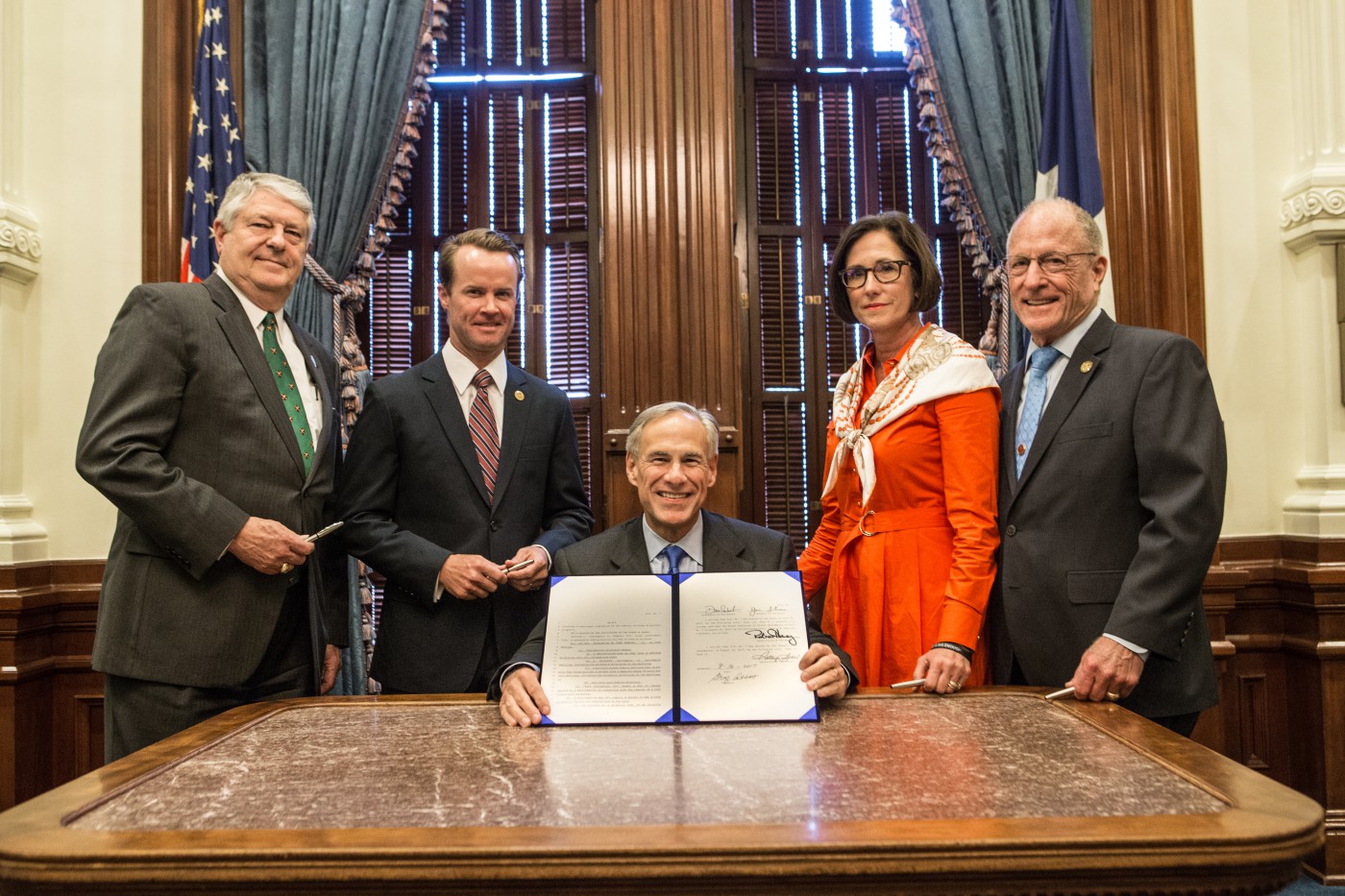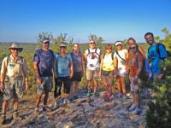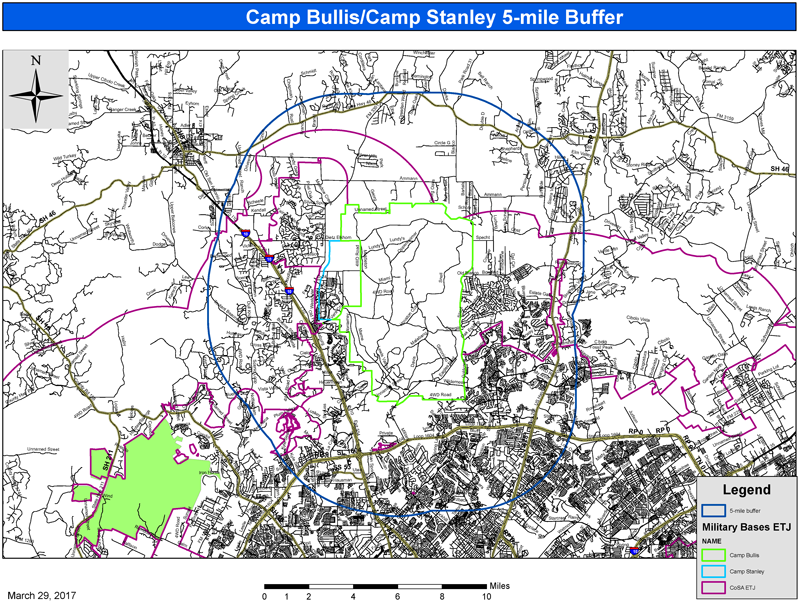Comments from the Chair
Politics and our environment
- Locally the City of San Antonio (COSA) is having public hearings on its proposed Fiscal Year 2018 Budget. This document is over 300 pages, and outlines spending priorities for the next year. I urge all citizens to have a look at this and find areas of importance to you. Democracy depends on informed and engaged public input. We in Alamo SC will be working to see that our environmental priorities get the attention and funding they deserve. The Budget process input opportunities are described here.
- The Texas Legislature's Special Session is history, mercifully. The worst anti-tree bill failed, and a bill very similar to the one passed last spring and vetoed by Gov Abbott was passed and this time was signed by the Governor. This bill (HB7) does not include the egregious language of HB70, and should allow San Antonio to continue to reasonably protect its tree canopy. A HUGE expression of thanks and congratulations goes out to our own Richard Alles for his tireless work over the years to once again protect us from those who hate trees.
- We continue to work in cooperation with other groups to see our air quality monitoring and ozone reduction efforts continue despite the absence of state and federal support. The COSA budget will hopefully include strong Climate Action planning, and CPS, AACOG and COSA will hopefully find a strong new air improvement process.
- The federal government has decided that Border Wall expansion in South Texas will not be subject to environmental review, placing endangered species like the ocelot, and critically important wildlife refuges like the Santa Ana at direct risk of being disrupted and damaged or destroyed. All of us who care about birding and wildlife, as well as the people who live, own land, and vacation in the Valley should be deeply concerned about the effects of this WALL.
- The second largest investor in Georgia Power’s new still incomplete nuclear power plant wants us the taxpayers, through the Dept of Energy (U.S. DOE), to bail it out with $1.6B to get this boondoggle finished. Once again the public is asked to pay for bad private investment.
- Dept of Interior Sec. Zinke has proposed, at Mr. Trump’s urging (without release of any details) major reductions in a number of National Monuments created by President Obama. No President has EVER acted to reduce monument designations by a predecessor. The motive appears to be to enable more mineral development on these federal lands. The Sierra Club strongly opposes reduced protections to our designated monuments and other federal lands.
Alamo Group activities
- It is time for all of you to think about greater involvement in our local Sierra Club. We have lots of exciting things happening here in San Antonio, and our new Mayor and Council provide us a great opportunity to have a positive impact on how San Antonio grows into the future. Advocates are needed from every part of our community--for environmental health and justice, clean air and water, equity and inclusion, smarter growth and transportation. Check out our website at AlamoSierraClub.org for meetings and events. Come and get involved in our Conservation Committee (second Tuesday of the month, 6pm, William R. Sinkin Eco Centro, 1802 N. Main Ave.).
- Sierra Club is a member based volunteer organization with elected leadership. Annual elections for our local Executive Committee will occur later this year. Now is the time for you to consider serving on this vital committee (monthly meetings the second Thursday 6pm at EcoCentro) that manages overall local Alamo SC activities. Your help is needed!
- Our Political Committee is already beginning to work toward spring 2018 primary and fall general elections. As 2016 showed, elections matter. Voting is important. Finding and supporting good candidates can make a huge difference, and we see the positive effect of that here in our local elections this May and June. This is another great way to be involved.
- We have active youth and general outing programs, and more help is always needed and welcome. Join us on our Meetup page where you'll find upcoming outings and get notifications of new outings.
- Check out our monthly meetings. On every third Tuesday, our General Meeting is at 6:30 pm at EcoCentro. On the fourth Thursday of each month, there is an informal event at 6:30pm at Lions Fields, where speakers discuss varied topics of local interest, environmental films are shown etc. Our program director Barbara McMillan always welcomes help and program suggestions.
- We need a volunteer to help expand our membership outreach. We do not do enough to welcome new members, assist members in finding ways to get involved, follow up with member issues and renewals etc. This is a great opportunity for a volunteer to help us do a better job in reaching out to and representing our entire community.
- We need fundraising leadership. Our activities, especially involving various campaigns, often cost money and fundraising needs are on going. Mail-in and online donations are always appreciated (please indicate for Alamo SC use). We are searching for new fundraising leadership to help with new activities such as auction/holiday party etc. Please consider volunteering to help.
by Terry Burns, M.D., Alamo Group Chair
Building Resilience in Face of Climate Change: Why Equity Matters
Our September General Meeting will be a panel discussion moderated by Meredith McGuire, Conservation Chair of the Alamo Group.
Tuesday, September 19th
6:30 p.m.
William R. Sinkin Eco Centro, 1802 North Main Avenue
Map
Extreme Heat: A New Approach to Climate Organizing in San Antonio
It was billed as an opportunity to address “Extreme Heat: Survival Strategies for a Hotter San Antonio.” Breaking down the climate crisis to what city residents can feel deeply, without an often assumed depth of understanding about the science, the first of a series of monthly events came together on August 23rd with music, poetry, food and drink.
It concluded with a discussion of San Antonio's proposed Climate Action Plan, which is being tasked to University of Texas at San Antonio with $500,000 from CPS Energy. There was a free-flowing discussion on organizing around the immense challenges forced on the world by fossil fuel-driven development.
The event was intended as practical response to growing suffering caused by rising temperatures and an amplified "heat island effect" — where denuded, asphalt-rich sections of typically low-income and historically disempowered communities may see several times the temperature rise of surrounding parts of town.
Speaking to evolving efforts at the city's health department, George Perez, an activist, counselor, and educator with San Antonio's Metropolitan Health District, shared tips on recognizing heat stress and dehydration, particularly among at-risk populations, such as elders and children.
Karla Aguilar, a danzante and development director at American Indians in Texas, shared strategies of making use of native foods and herbs for adapting to a warmer world.

Meanwhile, Peter Bella, former natural resources director at the Alamo Area Council of Governments and current activist, steered these conversations into talk of the impact of coal plants and other sources of fossil-fuel pollution driving ground-level ozone creation and resulting health impacts.
At its root, the gathering at Five Points Local was dedicated to building stronger communities of common concern. For this, open dialogue and the arts, chiefly music and poetry, communicated in ways that the assemblage of facts and data could not.
“The free flow of poetry and music is something new to my experience,” said Bella. “I think we have to have that kind of openness because the climate problems we face, when we look at the environmental challenges, they need not only the why … but they need the depth of feeling that comes with the gut feeling and gut understanding that causes us to respond, that causes us to make changes.”
With the floor opened up to discussion, musician Ruben Martinez, who plays under the name Tell the Tale, spoke out on his vision of changemaking in San Antonio. “What can you and us and I as an individual do? Campaign, campaign, campaign,” Martinez said. “Imagine you're trying to bring in votes at your work, at your church, at the library, at the bus stop. “At my church, my pastor's like, 'Spread the love of Jesus.' And I was like, 'That's good too.' I love doing that. But spread awareness. Spread whatever acts that you do.”
The draft 2018 city budget now being negotiated includes $67,000 for a new staffer at the City Office of Sustainability, a position intended to guide development of the CAP. However, local organizers have been questioning how transparent and inclusive the CAP process will be. It is also yet to be determined if CPS Energy emission reductions will be required in that plan.
Future events are being planned for San Antonio that will tackle many of the themes likely to flow out of the City's Climate Action Plan, just now making its way through the budget planning process for 2018. These will inevitably include the extreme storms and flooding that have impacted Texas like no other state in the nation, Hurricane Harvey being just the latest example.
To get involved, contact San Antonio resident and Sierra Club Clean Energy Organizer Greg Harman.
by Greg Harman, Clean Energy Organizer for the Lone Star Chapter of the Sierra Club
Living in Relation to the Natural World

This month, our Lions Field event is a group discussion guided by Betsy and John Mustol. Virtually all the environmental problems we face today are caused by us humans - the way we live and behave. This means we need to change, and to do that, we need to understand why we live and behave as we do in relation to the natural world and how we can change.
When you think about it, this is what the Sierra Club and many environmental organizations are about. We will have a guided discussion on these questions and then discuss practical ways to apply our ideas to the work of the Sierra Club. I am sure all of you have great ideas. We hope you will come ready for a lively and helpful discussion.
Thursday, September 28th
6:30 p.m.
Lions Field Adult Center, 2809 Broadway @ Mulberry
Use VIA bus route 9 or 10
Map
Betsy and John Mustol both grew up in San Diego, CA and have been married for 43 years. They did medical work for 8 years in Africa - John as a doctor and Betsy as a nurse. Betsy has pursued a career in hospice nursing. After retiring from medicine, John has studied ecology, philosophy, theology, and ethics in respect to environmental problems. He is currently finishing a Ph.D. with a focus on human nature and behavior in relation to environmental problems. They moved to San Antonio two years ago to help with grandchildren.
This event is free and open to the public.
On the Appalachian Trail in Bigelow Preserve, Maine
Bigelow Preserve Public Reserved Land is in western Maine, about 35 miles from the northeastern corner of New Hampshire and 30 from the province of Quebec, Canada. Public Reserved Lands in Maine are like state parks but less developed.

Bigelow PRL encompasses the seven peaks of the Bigelow Range, most of which are traversed by the Appalachian Trail. There are great hiking opportunities in Bigelow including routes up to and along the AT. Canoeing is also a key activity. Flagstaff Lake just north of the Bigelow Range is part of the Northern Forest Canoe Trail, which covers 740 miles through New York, Vermont, Quebec, New Hampshire and Maine.
The images below taken in June 2017 are from the highest peak in the Bigelow Range, West Bigelow, 4,150'. This is at mile 1998 on the AT, numbered from 0 at Springer Mtn in Georgia to 2178 at Mt. Katahdin in Baxter State Park, Maine.
For further info on hiking in Maine, please read in previous issues of this newsletter: on climbing Katahdin and the new Katahdin Woods and Waters National Monument, October 2016; and on the easternmost protected land in the US, November 2016.


by Kevin Hartley, Alamo Group Outings leader
Water, Water Everywhere…
Iquitos is the largest city in the world inaccessible by roads. Either fly in or take the slow boat. It’s totally surrounded by water, all which flows into the Amazon. Lots of water and all of it contaminated. The Ministry of Housing and Sanitation just declared a “sanitary emergency” and plans to spend $26 million to provide potable water to 70 communities around the state capital, Iquitos.
One of the major sources of contamination is from oil spills, due to the lack of maintenance and corrosion of the main NorPeru Oil Pipeline, owned by the state oil company Petroperú. In 2016 they admitted to 16 major spills, although they placed blame on “third parties.” The Interamerican Commission on Human Right has documented that the spills were the fault of Petroperú and worse, that the oil company employed minors to clean up the spills, all without adequate protection and in direct violation of the law. The spills totaled more than 3,000 barrels and contaminated rivers that feed directly into the Amazon.

Problems with water contamination have been exacerbated by the passage of a law three years ago that required the state Environmental Protection Agency to work with polluters to try to encourage them to mend their ways rather than implement fines. This law, referred to as the “Paquetazo Ambiental” (Big Environmental Package) was anything but (the U.S. Congress doesn’t hold a monopoly on irony when misnaming laws). Only recently, this law was overturned, as it was “prejudicial to environmental protection and basic human rights, as well as weakening the institutionalization of environmentalism,” according to a report made to Congress.
Hopefully this new attitude in the Congress will help reduce water contamination. The emergency funds allocated by the state will also better access to potable water. All that will be helped when the state, acting through its oil entity Petroperú becomes more transparent about the ecological damage it is causing in the Amazon, and then does something about it.
by John B. Hertz, Green Buildings Leader, from Lima, Peru
Special Session Ends in Partial Victory
Governor Abbott's special session of the Texas Legislature began with him calling tree ordinances "socialism" and announcing his intention to prevent cities from regulating what property owners do with trees. It ended in defeat for extreme bills written to completely preempt municipal tree ordinances.
But a bill putting limits on those ordinances is now law. In addition, legislation passed that effectively stops San Antonio from annexing more territory. However, bills designed to increase developers’ grandfathering out of local environmental regulations failed to gain committee approval.
Abbott signs anti-tree bill nearly identical to one he vetoed
House Bill 7, relating to municipal regulation of the removal of trees on private property, was signed by Gov. Abbott and becomes effective on December 1, 2017. HB 7 requires cities to provide credits against tree mitigation fees charged to developers and, in some cases, homeowners for excessive tree removal.
Credits are obtained by planting 2" diameter trees of a species designated by the city and on either: a) the site from which the tree was removed or, b) another site mutually agreed upon by the city and landowners. HB 7 will affect approximately 130 tree ordinances in Texas.

Donna Campbell pushed a radical clear-cutting bill
San Antonio barely escaped the environmental devastation that legislation sponsored by Sen. Donna Campbell would have created. When her bill to allow developers to clear-cut 420,000 acres (the extra-territorial jurisdiction or "ETJ") surrounding San Antonio failed to get even a hearing, her Senate committee resurrected it by tacking it onto HB 7.
Straus pulled San Antonio back from the brink
When Sen. Kolhorst presented the amended HB 7 to the full Senate, she wrongly claimed the bill didn't apply within 5 miles of a military base. In fact, the Campbell amendments to HB 7 would have allowed clear-cutting right up to the fenceline of Camp Bullis.
Fortunately, Speaker Joe Straus's parliamentarian ruled that two of the Senate's amendments, including Campbell's ETJ clear-cutting amendment, were not germane to the bill's original purpose. HB 7 was rejected and returned to the Senate.
In the wee hours of the morning, the Senate, in apparent violation of its rules for reconsideration of bills, stripped off the non-germane amendments, passed the bill once again and sent it back to the House. It was subsequently passed and sent to the Governor.
The workings of HB 7
- San Antonio is already in compliance with the tree mitigation fee requirements in HB 7, and the bill will have no effect on our tree ordinance. However, there were conflicting explanations given by HB 7's sponsors (see more on this below), so there are other possible interpretations of its impact.
- Regardless of how the mitigation fee section is interpreted, the bill does not apply to property within 5 miles of a military base. So 5-mile buffer areas around Camp Bullis, Camp Stanley, Lackland AFB and Ft. Sam Houston will be exempt from the bill's provisions.
Five takeaways from the special session
1) Texans didn’t want the anti-tree bills
Opposition to Abbott's anti-tree bills was overwhelming. Opponents turned out in droves to speak against the bills in committee hearings. While the bill sponsors claimed their legislation was to help homeowners, not a single homeowner showed up to testify as to a particular grievance with any tree ordinance.
2) Campbell's anti-annexation bill will hamstring environmental protections
Sen. Campbell's anti-annexation bill will, over time, make tree and aquifer protection ordinances ineffective. Campbell's legislation prevents, for the most part, cities from expanding their geographic extents through annexation.
Eventually, all of the land within a city's jurisdiction will be developed. At that point, most development will be occurring in surrounding areas where there are no municipal development rules whatsoever. Only the extremely limited county development rules will apply, and counties have no authority to enforce tree or water quality ordinances. While anti-tax tea partiers supported this legislation, it's primary purpose is deregulation of the land development industry.
3) Campbell puts developers ahead of our military
Although Campbell likes to pronounce her support for the military, her actions in the special session were decidedly anti-military. She fought requests by the Army and the City's military affairs liason to provide buffer zones that would protect bases from the negative impacts of encroachment.
She argued with military representatives in committee hearings and made light of Camp Bullis's endangered species problems on the Senate floor, saying we need "policies for people and not warblers". Her understanding of the issues is deeply flawed and riddled with misconceptions.
4) They’ll be back
Lois Kolkhorst promised HB 7 was “the start of a conversation”. I can guarantee, that conversation is going to be about how many more trees developers can destroy.
There is now a statute on the books establishing state regulation of local tree ordinances. You can bet there will be bills filed to amend this statute every time the legislature meets, from here on out.
5) Bill sponsors don’t agree (even with themselves) on what HB 7 says
Because HB 7 can be interpreted in more than one way, I contacted several representatives to get HB 7's legislative intent established during the August 15th House floor vote. According to Rep. Phelan's Statement of Legislative Intent, San Antonio already complies with HB 7.
However, Phelan gave a substantially different statement when he presented a nearly identical bill to the House Committee on Urban Affairs. According to this interpretation, HB 7 reduces developers’ tree mitigation requirements by 1/3.
For example, suppose a developer is required to mitigate 30” of excessive tree removal. Currently, he does that by planting fifteen 2” diameter trees or paying a $6,000 mitigation fee. Under this alternate interpretation, he is required to plant only ten 2” trees.
It remains to be seen how CoSA will implement HB 7.
by Richard Alles, Forests/Trees conservation leader

Sierra Club Campaigns
For Tomorrow
There's nothing the climate change deniers in the White House can do to stop our commitment to creating a better future -- which is why we're asking you to join For Tomorrow
If you join us, on September 1, you'll be asked to reduce your carbon footprint and raise both awareness of environmental issues and funds to protect our planet.
Join a Rapid Response Team
To take on the realities of a Trump Administration, we all need to get involved. Because attacks against our clean air, water, climate, public lands, and everything else will potentially come quickly and from all sides, we will need to be ready to act.
Join a local rapid response team, and tell us how you want to get involved. We'll get in touch with how to take the next step.
Resist | Help wildlife, protect the environment, support nature conservation, save the planet
Donald Trump has launched an all-out assault on the laws that protect our clean air, our clean water, our health, and the safety of our communities. But when we work together, our voices can add up -- and they'll have no choice but to listen. Let's get started.

Outings: The Call of the Wild
Visit the Alamo Sierra Club Outings page on Meetup for detailed information about all of our upcoming Sierra Club Outings.
The Alamo Sierran Newsletter
Richard Alles, Editor
Published by The Alamo Group of the Sierra Club, P.O. Box 6443, San Antonio, TX 78209, AlamoSierraClub.org.
The Alamo Group is one of 13 regional groups within the Lone Star Chapter of the Sierra Club.
Keep your email address current!
Send updates to Loyd Cortez, providing your name, address and membership number (if known).
Changed your mailing address?
Have you moved? Let us know by sending your old address, your new address and your member number (look on the upper left corner of your mailing label) to: address.changes@sierraclub.org.
Go online for the latest news and events
 |
